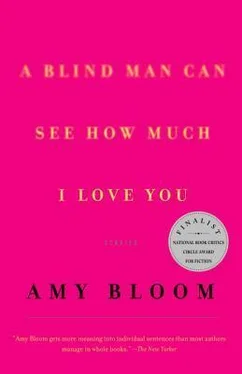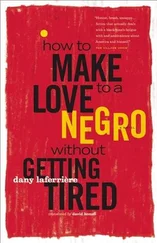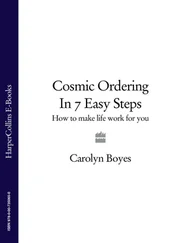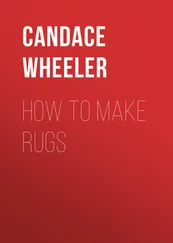“Ah.” Charley gets on his knees in front of Ellie, his eyes almost level with hers. Ellie keeps her eyes on the fireplace.
On the left side of Ellie’s narrow chest, a hand’s length below her small, pretty collarbone, a few inches from the edge of her suntan, there is a smooth ivory square of skin bisected by a red-blue braid of scar tissue. In the middle of the scar is a dimple.
“That?” says Charley, pointing without touching.
“Where the nipple was.”
“Ah.” Charley wipes his eyes with the back of his hand. He cups Ellie’s breast in his palm and leans forward, his other arm around her waist. He lays his cheek against the scar.
“Can you feel this?”
“I can feel pressure. That’s all I feel right there.”
“Not hot or cold?” Charley can feel the water between his rough and Ellie’s smooth skin, and the tiny bumps of her scar coming up lightly against his cheek.
“I don’t think so. I feel your hair higher up.”
Ellie puts both hands in Charley’s wet hair, the silver-blond waves coming up between her fingers. He smells of salt.
“Shut your eyes, Ellie.” Her elbows rest on his shoulders. She smells like fresh corn, of course, and underneath that, peonies.
Charley traces the tiny red rope rising from Ellie’s pale marble blankness, in and out, its tight twists and shrugs crisscrossing each other under his tongue, growing bigger in his mouth. He circles the indentation in the middle, over and over, as if it will open to him, as if underneath the scar is the whole breast, not gone, but concealed.
Ellie knows it is Charley’s lips and tongue, and she feels them with the muffled longing of a woman watching rain fall.
For or fifteen years, I saw her only in my dreams.
When my father got sick in the spring of my junior year, dying fast and ugly in the middle of June, I went to Paris to recover, to become someone else, un homme du monde, an expert in international maritime law, nothing like the college boy who slept with his stepmother the day after his fathers funeral. We grieved apart, after that night, and I left her to raise my little brother, Buster, and pay all the bills, including mine. Buster shuttled back and forth for holidays, even as a grown man, calm and affectionate with us both, bringing me Deaf Smith County peanut butter from my mother for Christmas morning, carrying home jars of Fauchon jam from me, packed in three of his sweat socks. My mother’s letters came on the first of every month for fifteen years, news of home, of my soccer coach’s retirement, newspaper clippings about maritime law and French shipping lines, her new address in Massachusetts, a collection of her essays on jazz. I turned the book over and learned that her hair had turned gray.
“You gotta come home, Lionel,” my brother said last time, his wife sprawled beside him on my couch, her long, pretty feet resting on his crotch.
“I don’t think so.”
“She misses you. You know that. You should go see her.”
Jewelle nodded, digging her feet a little further, and Buster grinned hugely and closed his eyes.
“You guys,” I said.
My brother married someone more beautiful and wild than I would have chosen. They had terrible, flying-dishes fights and passionate reconciliations every few months, and they managed to divorce and remarry in one year, without even embarrassing themselves. Jewelle loved Buster to death and told me she only left when he needed leaving, and my brother would say in her defense that it was nothing more than the truth. He never said what he had done that would deserve leaving, and I can’t think that it was anything very bad. There is no bad even in the depths of Buster’s soul, and when I am sick of him, his undaunted, fat-and-sassy younger-brotherness, I think that there are no depths.
When Buster and Jewelle were together (usually Columbus Day through July Fourth weekend), happiness poured out of them. Buster showed slides of Jewelle’s artwork, thickly layered slashes of dark paint, and Jewelle cooked platters of fried chicken and bragged on his latest legal victories. When they were apart, they both lost weight and shine and acted like people in the final stage of terminal heartbreak. Since Jewelle’s arrival in Buster’s life, I had had a whole secondhand love affair and passionate marriage, and in return Buster got use of my apartment in New York and six consecutive Labor Days in Paris.
“Ma misses you,” he said again. He held Jewelle’s feet in one hand. “You know she does. She’s getting old.”
“I definitely don’t believe that. She’s fifty, maybe fifty-five. That’s not old. We’ll be there ourselves in no time.”
My mother, my stepmother, my only mother, is fifty-four and I am thirty-three and it has comforted me over the years to picture myself in what I expect to be a pretty vigorous middle age and to contemplate poor Julia tottering along, nylon knee-highs sloshing around her ankles, chin hairs and dewlap flapping in the breeze.
“Fine. She’s practically a spring chicken.” Buster cut four inches of Brie and chewed on it. “She’s not a real young fifty-five. What did she do so wrong, Lionel? Tell me. I know she loves you, I know she loves me. She loved Pop, she saved his life as far as I can tell. Jesus, she took care of Grammy Ruth for three years when anyone else would’ve put a pillow over the woman’s face. Ma is really a good person, and whatever has pissed you off, you could let it go now. You know, she can’t help being white.”
Jewelle, of whom we could say the same thing, pulled her feet out of his hand and curled her toes over his waistband, under his round belly.
“If she died tomorrow, how sorry would you be?” she said.
Buster and I stared at her, brothers again, because in our family you did not say things like that, not even with good intentions.
I poured wine for us all and put out the fat green olives Jewelle liked.
“Well. Color is not the issue. You can tell her I’ll come in June.”
Buster went into my bedroom. “I’m calling Ma,” he said. “I’m telling her June.”
Jewelle gently spat olive pits into her hand and shaped them into a neat pyramid on the coffee table.
Iflew home with a new girlfriend, Claudine, and her little girl, Mirabelle. Claudine had business and a father in New York, and a small hotel and me in Paris. She was lean as a boy and treated me with wry Parisian affection, as if all kisses were mildly amusing if one gave it any thought. Claudine’s consistent, insouciant aridity was easy on me; I’d come to prefer my lack of intimacy straight up. Mirabelle was my true sweetheart. I loved her orange cartoon curls, her red glasses, and her welterweight swagger. She was Ma Poupée and I was her Bel Homme.
Claudine’s father left a new black Crown Victoria for us at JFK, with chocolates and a Tintin comic on the back seat and Joan Sutherland in the tape player. Claudine folded up her black travel sweater and hung a white linen jacket on the back hook. There was five hundred dollars in the glove compartment, and I was apparently the only one who thought that if you were lucky enough to have a father, you might reasonably expect him to meet you at the airport after a two-year separation. My father would have been at that gate, drunk or sober. Mirabelle kicked the back of the driver’s seat all the way from the airport, singing what the little boy from Dallas had taught her on the flight over: “I’m gonna kick you. I’m gonna kick you. I’m gonna kick you. I’m gonna kick you, right in your big old heinie.” Claudine watched out the window until I pulled onto the turnpike, and then she closed her eyes. Anything in English was my department.
Читать дальше












